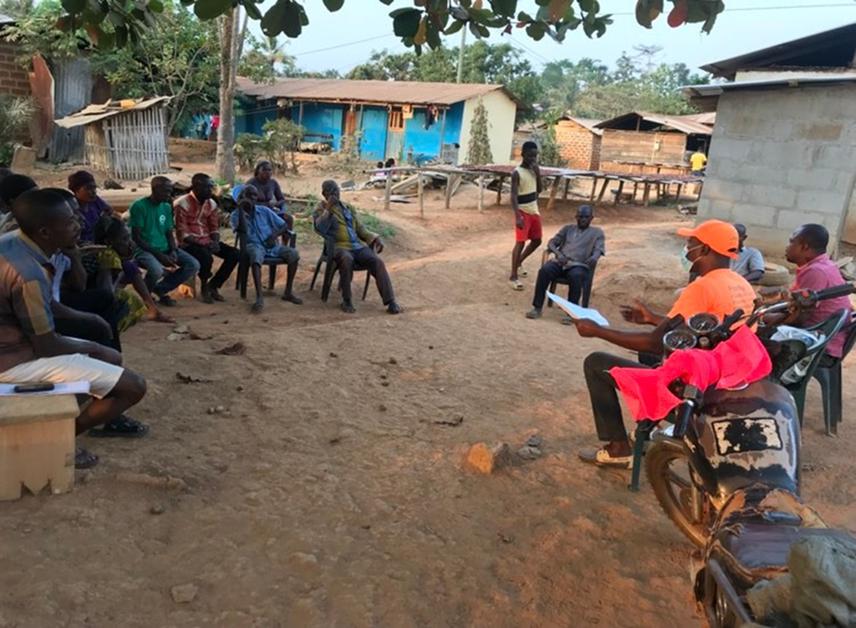Marshall Alhassan Adams
Other projects
In 2018, It became clear during my first Rufford Small Grant (RSG) where I studied Ghana’s forest governance practices that the main driver of forest biodiversity loss is not only illegal logging, but also cocoa expansion into the remaining intact forests (corroborated by Ameyaw et al., 2018; Hirons et al., 2018). Cocoa farming is by far the main driver of forest loss in Ghana, resulting in habitat loss for key species that rely on the last remaining segments of the Guinea Forest Region of West Africa.

Given the broad consensus that poverty is a root cause of cocoa-driven deforestation, the government of Ghana introduced the Living Income Differential to make cocoa production more sustainable from both social perspective and environmental conservation perspectives. This second RSG would allow for in-depth investigation into the issues surrounding poverty-driven biodiversity loss in and around the Krokosua Hills Forest and Bia Biosphere Reserves, two biodiversity hotspots that are concurrently deforestation hotspots due to rapid acceleration of cocoa farmland expansion in recent years (Global Forest Watch, 2019). This project brings together diverse stakeholders to inform policy about the vital role of the Living Income Differential in cocoa sustainability and anti-deforestation efforts in Ghana. Such research can unravel the complexity of counterproductive policies and highlight the importance of cross-sectoral linkages between farming and forest conservation (Malleson et al., 2008) which can, in turn, feed into policy to make it more effective.
The project partner is the NGO Social Enterprise Development Foundation (SEND-Ghana), a policy advocacy organization that specializes in voicing the concerns of smallholder farmers. Our community-engaged research will support policy advocacy by co-creating pro-poor strategies for assisting cocoa sector advocates to successfully achieve a sustainable livelihood for cocoa farmer households. Specifically, the project will benefit SEND-Ghana by providing new knowledge about the underlying structural vulnerabilities of cocoa farmers, including through field work to determine the barriers to obtaining the living income so urgently needed. Our research findings will be of immediate use to SEND-Ghana and their multi-stakeholder platform for influencing sustainability policies, programs, and practices in Ghana's cocoa sector. By harnessing the collaborative power of SEND-Ghana to accelerate multi-stakeholder reflection, and deliberation on the research findings, we can make progress towards resolving challenges pertaining to sustainability of cocoa production in Ghana and beyond.